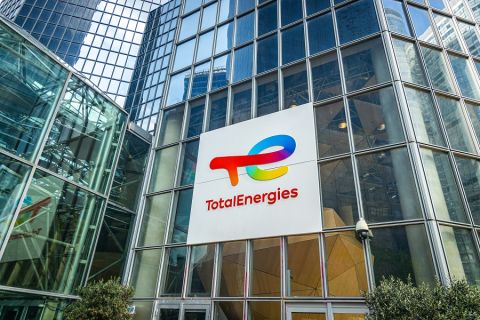With the final, resigned acknowledgement by most upstream operators that low natural gas prices are likely here to stay, at least during the next several years, oil and gas producers have just one thing on their minds—seeking liquids. Admittedly, oil is the preferred form of energy liquids, but high-Btu gas and the resultant natural gas liquids (NGLs), après processing, are gaining in popularity every day.
Yet, a major ramp up of gas processing to reap valuable NGLs is still in the initial stage. The energy industry’s gas-processing sector did not see much of an increase in overall capacity in the U.S. during 2010. In fact, according to industry data, total nameplate capacity of gas processing plants increased a mere 3.5%, to 74.8 billion cubic feet (Bcf) per day, up from 72.3 Bcf in 2009. And throughput, the actual gas processed, despite marginally higher capacity, actually fell 0.2%, from 45.9 Bcf per day in 2009 down to 45.8 in 2010.
Overall, the amount of liquids made from processing, including ethane, propane, isobutane, normal butane, liquefied petroleum gas mix, raw natural gas liquids, and debutanized natural gas, increased a meager 0.68%, from an average 75.7 million gallons per day in 2009 to 76.3 million gallons per day in 2010. New and improved processing methods, and the increased focus on liquids through the latter part of 2010, explain the slight uptick in liquids production despite the decline in throughput.
The top-dog-of-nameplate-capacity award goes to BP Plc, which increased its nameplate capacity to an estimated 13.2 Bcf per day, beating runner up DCP Midstream Inc., which weighed in with an estimated 9.3 Bcf per day.
This year, midstream operators are announcing a multitude of new gas-processing projects and reactivated fractionation facilities, most of which are intended to process rich gas from today’s hot plays, including the Granite Wash, Marcellus, Eagle ford, Denver-Julesburg, Texas Panhandle, Avalon and other regions.

Enterprise Products Partners LP plans an expansion of fractionation capacity at its Mont Belvieu facilities, due to increased production from the Eagle Ford Shale play and increased demand for NGLs from petrochemical plants.
Granite Wash
One of the more notable projects includes the plan by Eagle Rock Energy Partners LP, based in Houston. The company will expand its high-efficiency cryogenic Phoenix processing plant in Hemphill County, Texas, by an incremental 30 million cubic feet (MMcf) per day, to process up to 80 MMcf per day by year end. The $20-million expansion of Phoenix, coupled with expansions of related gathering systems, will process growing supply from the Granite Wash play. The expansion is complimentary to the partnership's recent acquisition of CenterPoint Energy assets in Hemphill and Wheeler counties.
Also, Penn Virginia Resource Partners LP, based in Radnor, Pennsylvania, plans to expand its Antelope Hills processing facility in the Granite Wash by mid-2012. Recently, the company acquired the $11.44-million gathering system and processing facility in the Texas panhandle area, which include a 20 MMcf per day cryogenic processing facility and a 15-mile gathering system in Lipscomb and Hemphill counties. The planned expansion will involve additional investments of up to $35 million and will increase the company’s total Panhandle-processing capacity to 330 MMcf per day.
Additionally in the Granite Wash, MarkWest Energy Partners LP, based in Denver, plans to build a third facility at its Arapaho processing complex in western Oklahoma to serve producers Newfield Exploration Co. and Linn Energy LLC, among others. When completed in third-quarter 2011, the processing capacity at the complex will increase to 220 MMcf per day, up from 120 MMcf today.
Marcellus
In the Marcellus shale in the Northeast, MarkWest Liberty Midstream & Resources LP, a partnership between MarkWest Energy Partners and The Energy & Minerals Group, will operate a third regional processing plant when it completes construction of its 120 MMcf per day cryogenic plant in Logansport, West Virginia, in mid-2012. The plant will include an associated NGL pipeline and will move liquids-rich gas from EQT Corp.’s Equitrans pipeline from northern West Virginia. Most of the facility’s capacity is under contract to EQT. NGLs will be transported to MarkWest Liberty’s fractionation, storage and marketing complex in Houston, Pennsylvania.
Recently, the company announced plans to build the Mariner pipeline and marine project with Sunoco Logistics Partners LP to transport up to 50,000 barrels per day of ethane to the Gulf Coast. The project includes a 45-mile pipeline from the Houston, Pennsylvania, complex to an interconnection with a Sunoco Logistics pipeline in Delmont, Pennsylvania, which will transport the ethane to refrigerated storage facilities along the East Coast and then move them via ship to Gulf Coast markets. The Sunoco Logistics pipeline will cross larger pipelines into the Northeast to provide multiple ethane-blending options to shippers.

Elsewhere in the Marcellus, Dominion Transmission Inc., headquartered in Richmond, Virginia, announced plans to build a gas-processing and fractionation plant near New Martinsville, West Virginia, as part of its previously announced Marcellus 404 project. The company acquired 56 acres of land from PPG Industries at its Natrium site that it will use to build the plant, which will process up to 300 MMcf per day of natural gas and fractionate up to 38,000 barrels per day of NGLs. The site is near railroad and barging services and a Dominion pipeline. The facility will be tied into the company’s TL-404 transmission line in Ohio and West Virginia that will be converted into a wet-gas service line.
Meanwhile, Caiman Energy LLC, based in Dallas, completed construction and startup of its Fort Beeler cryogenic natural gas processing plant near Cameron, West Virginia. The facility, which has a processing capacity of 120 MMcf per day, will process high-Btu Marcellus shale gas produced by Chesapeake Energy Corp. in Marshall and Wetzel counties, West Virginia, via a definitive long-term agreement.
Caiman anticipates completing its 200 MMcf per day Fort Beeler II processing plant by the end of this year. Also, the company is evaluating the buildout of a third cryogenic processing plant with 200 MMcf per day in the play. The projects are supported by the company’s pipeline and gathering system, which includes some 60 miles of high-pressure, large-diameter pipeline and 60 miles of gathering lines. Altogether, the company expects to operate some 520 MMcf per day of processing there by third-quarter 2012.
Eagle Ford
In the Eagle Ford shale play in Texas, Southcross Energy LLC, based in Dallas, plans to expand its gas-processing capacity to 335 MMcf per day. Southcross will construct a new natural gas processing plant with a capacity of 200 MMcf per day in Refugio County, which will be the company’s largest processing facility. Also, Southcross will increase efficiency and capacity at its Gregory plant in San Patricio County, upping the capacity to 135 MMcf per day. Construction on the new plant, sited some 25 miles northeast of Corpus Christi near Woodsboro, should be complete in second-quarter 2012.
Also in the Eagle Ford, Copano Energy LLC, based in Houston, plans to add a new 400 MMcf per day processing plant at its Houston Central complex. The $145-million plant will increase total capacity to 1.1 Bcf per day in early 2013.
The project coincides with the company’s new 20-mile, 20-inch pipeline that will move 400 MMcf per day of Eagle Ford gas to Formosa Hydrocarbons Co. The pipeline is part of a joint venture (JV) between Copano and Kinder Morgan Energy Partners LP, named the Eagle Ford Gathering LLC. In January, the JV reached a long-term agreement with Formosa for additional processing and fractionation.
Enterprise Products Partners LP, based in Houston, is constructing a fifth 80,000 barrels per day fractionation unit at Mont Belvieu due to a strong increased production from the Eagle Ford and an accompanying increase in petrochemical demand for NGLs. This unit is expected to be full when it comes online in Q4 2011. Creel also added that the company recently acquired 1,200 acres in Mont Belvieu, which provides it with increased size for growth.
Elsewhere in the play, Denver-based DCP Midstream LLC , with five processing plants in the play, plans a sixth plant in Edna, Texas. Upon completion of the $475-million project, DCP will push its capacity past 1 Bcf per day. The company plans to plumb all six of its plants together to create a “super system” in the region.
Denver-Julesburg
In the Rocky Mountains, DCP will build an eighth processing plant to handle production from the Denver-Julesburg Basin. The $270-million, 110 MMxf per day system in Weld County, Colorado, is expected to be completed in mid-2013. Also, the company will add large-diameter, high-pressure gathering lines in the greater Wattenberg field area to increase capacity on its existing system built in the 1970s and ‘80s, while lowering pressure in the field, which area producers say will help the wells perform better.
Bakken
In North Dakota, Saddle Butte Pipeline LLC, based in Durango, Colorado, plans a gas processing plant about seven miles north of Watford City, with an initial capacity of 25 MMcf per day. The second phase of the project could expand capacity to about 65 MMcf per day, with further expansions down the line.
And Hiland Partners LP of Enid, Oklahoma, plans a processing facility near Cartwright that will handle some 30 MMcf per day of gas. Further expansions are planned to bring it up to 85 MMcf per day.
Fractionation reactivation
In addition to gas processing, several fractionation re-starts have hit the news in recent months. Crosstex Energy LP and Crosstex Energy Inc., both based in Dallas, say the partnership has reactivated its Eunice NGL fractionator in southern Louisiana, which will give Crosstex operational flexibility, increased fractionation capacity and the ability to capture new NGL-related business.
The fractionator was reactivated with the necessary equipment to accommodate 15,000 barrels of NGLs per day. Additional capacity of 21,000 barrels per day can be restarted as supplies grow. The start-up and expansion project will increase the partnership’s existing fractionation capacity for liquids products from 40,000 barrels per day to 55,000 barrels per day. The initial incremental investment required to restart the fractionator was $7.6 million, and the annual cash flow to be generated from the expansion will be about $3.5 million with current committed volumes, reports the company.
The Eunice complex, including the fractionator and gas-processing facilities, provides access to South Louisiana petrochemical and refinery markets and includes a truck and rail unloading terminal that receives NGLs for fractionation from U.S. markets, including volumes from the Marcellus and other emerging shale plays, where there are limited markets and NGL infrastructure. In addition, the Eunice complex is connected to onshore gas supply in Louisiana, and shallow and deep water production from the Gulf of Mexico.
Avalon re-start
In Texas, Nuevo Midstream LLC, based in Houston, reported that it has sufficient acreage, volume and well commitments in the Avalon shale to support the recommissioning of its refrigerated Joule-Thomson processing plant and to restart its fractionator near Orla, Texas.
Nuevo Midstream will also upgrade its Ramsey gas gathering system with increased treating and compression capacity, 11 miles of new eight-inch pipeline and a new interconnect with the Enterprise Products Partners LP pipeline nine miles south of the plant, bringing the total system to 141 miles of high and low-pressure pipeline. The plant recommissioning and expansions to the Ramsey gathering system are expected to be complete by August 2011.

According to the company, it has taken the first step in a planned, multiphase expansion to serve producers pursuing the liquids-rich Bone Springs, Wolfcamp and Avalon Shale plays with needed infrastructure and downstream options to move gas to high-value markets.
Currently, Nuevo is in discussions with producers seeking further expansion of the processing and treating capacity of the Ramsey system and contracts for as much as 250 MMcf per day of total processing capacity.
Fractionation construction
Recently, Energy Transfer Partners LP and Regency Energy Partners LP reported that Lone Star NGL LLC, their JV that acquired the midstream assets of Louis Dreyfus Highbridge Energy, will construct a 100,000 barrels per day NGL fractionation facility at Mont Belvieu, Texas. Energy Transfer will utilize a substantial amount of the fractionation capacity to handle NGL barrels it will deliver from its Jackson County, Texas, processing plant, which is supported by multiple 10-year contracts with producers as a part of its Eagle Ford shale projects. Additionally, Regency will provide barrels to this project.
Lone Star expects to have the fractionation facilities completed by first-quarter 2013 at an estimated cost of up to $375 million. As part of the project, Lone Star will develop additional storage facilities for y-grade liquids and other components. The project will include interconnectivity infrastructure to provide NGL suppliers and NGL markets with access to storage, other fractionators, pipelines and multiple markets along the Texas and Louisiana Gulf Coast.
Also, Oneok Partners LP, based in Tulsa, plans to spend as much as $1.2 billion to ship NGLs from the central region of the U.S. to the Texas Gulf Coast. Along with various pipeline systems, the company plans a 75,000 barrels per day NGL fractionating plant in Mont Belvieu, to process production from the Woodford and Granite Wash plays, among others. The new plant should be completed by 2013.
Expanded strategy
As a new strategy, Boardwalk Pipeline Partners LP recently announced its intention to consider expanding its transportation-services focus to including gathering and processing services.

During a recent conference call to discuss fourth-quarter 2010 results, Rolf Gafvert, the company’s president and chief executive said, “With regard to gathering and processing, we are focused right now in the Eagle Ford area. Although, if you look at our pipeline assets, we have significant assets in many of the shale plays and we see gathering opportunities really across all of those shale plays, but we’re currently focused on the Eagle Ford.” Also, Gafvert revealed that the company is looking at constructing a gas-processing plant along the coast between Corpus Christi and Houston.
The change in strategy comes as Boardwalk anticipates growth opportunities as power plant operators switch feedstocks from coal to natural gas. “Boardwalk currently serves approximately 40 power generation facilities and we are optimistic about our opportunities to serve this market. In the short term, many industry experts are forecasting increased natural gas utilization for power generation, as operators switch from coal to gas in order to take advantage of favorable natural gas pricing caused by abundant natural gas supply,” he said.
Recommended Reading
Barnett & Beyond: Marathon, Oxy, Peers Testing Deeper Permian Zones
2024-04-29 - Marathon Oil, Occidental, Continental Resources and others are reaching under the Permian’s popular benches for new drilling locations. Analysts think there are areas of the basin where the Permian’s deeper zones can compete for capital.
CEO: Continental Adds Midland Basin Acreage, Explores Woodford, Barnett
2024-04-11 - Continental Resources is adding leases in Midland and Ector counties, Texas, as the private E&P hunts for drilling locations to explore. Continental is also testing deeper Barnett and Woodford intervals across its Permian footprint, CEO Doug Lawler said in an exclusive interview.
To Dawson: EOG, SM Energy, More Aim to Push Midland Heat Map North
2024-02-22 - SM Energy joined Birch Operations, EOG Resources and Callon Petroleum in applying the newest D&C intel to areas north of Midland and Martin counties.
E&P Highlights: April 15, 2024
2024-04-15 - Here’s a roundup of the latest E&P headlines, including an ultra-deepwater discovery and new contract awards.
Cronos Appraisal Confirms Discovery Offshore Cyprus
2024-02-15 - Eni-operated block partner TotalEnergies says appraisal confirms the presence of significant resources and production potential in the block.





